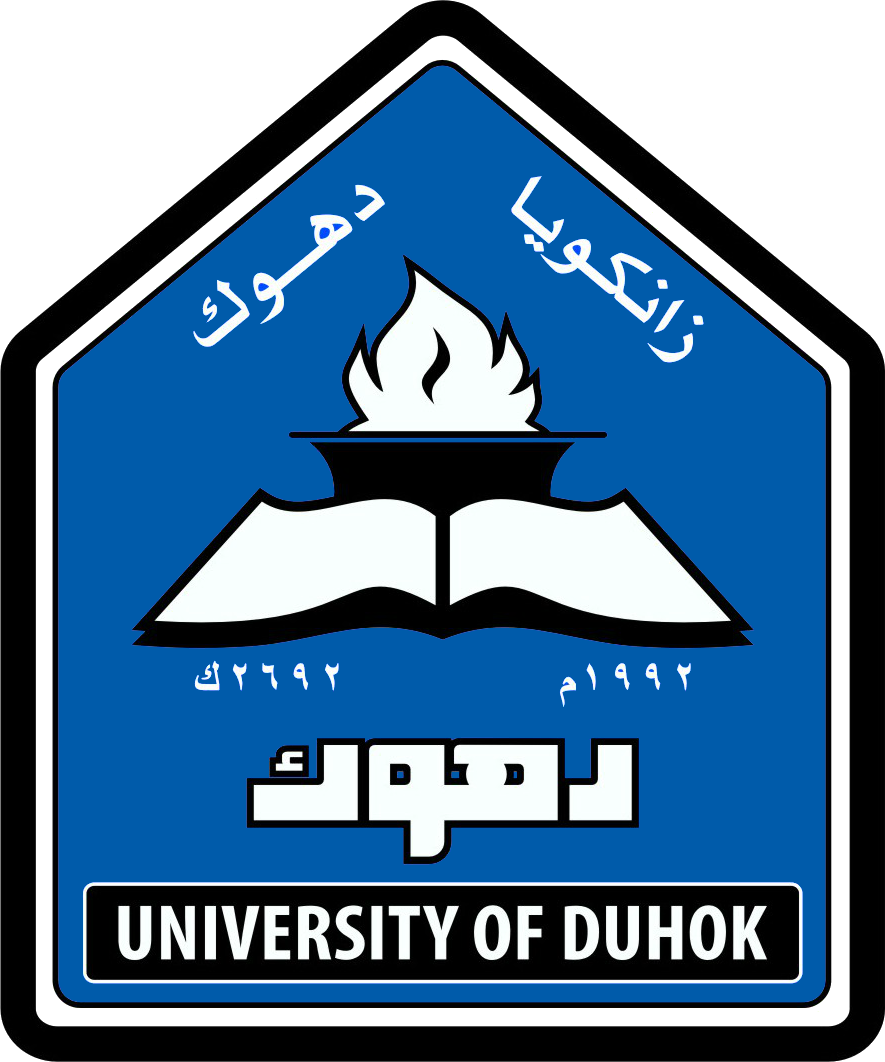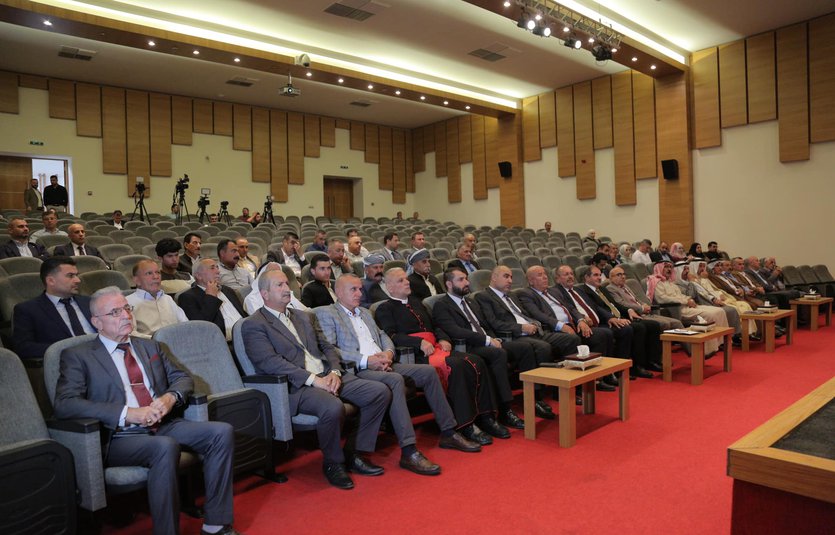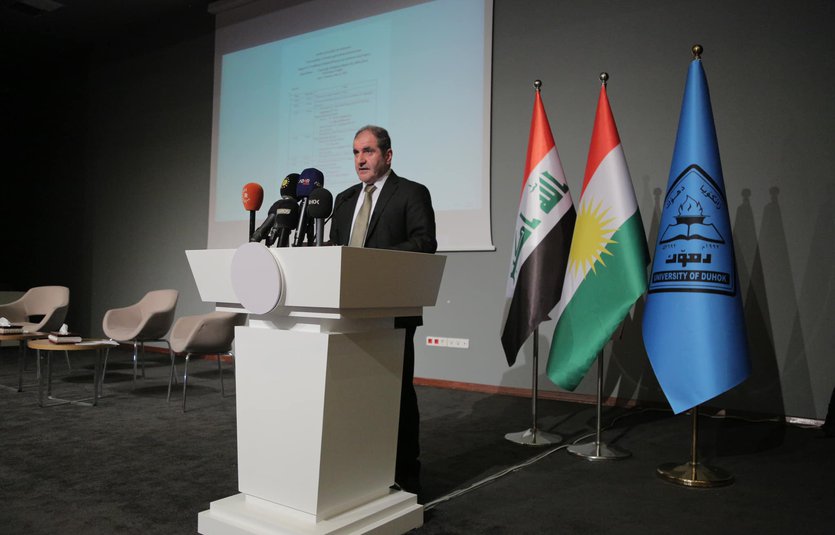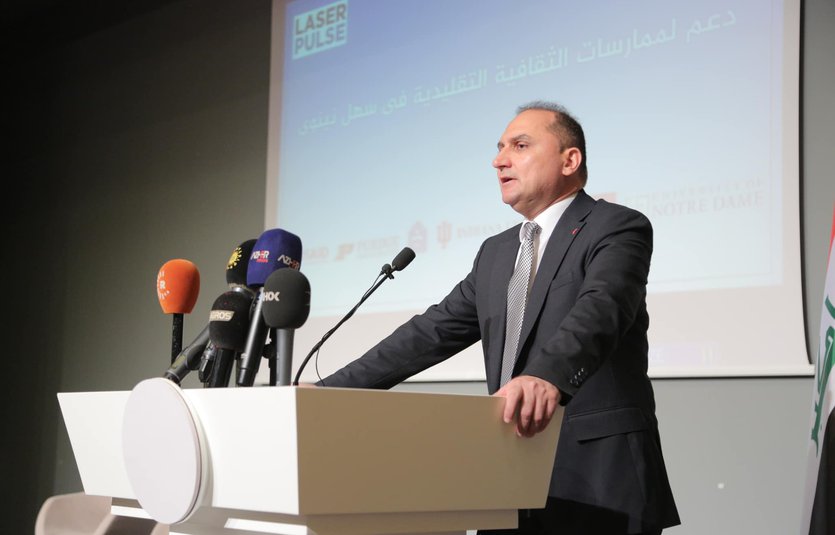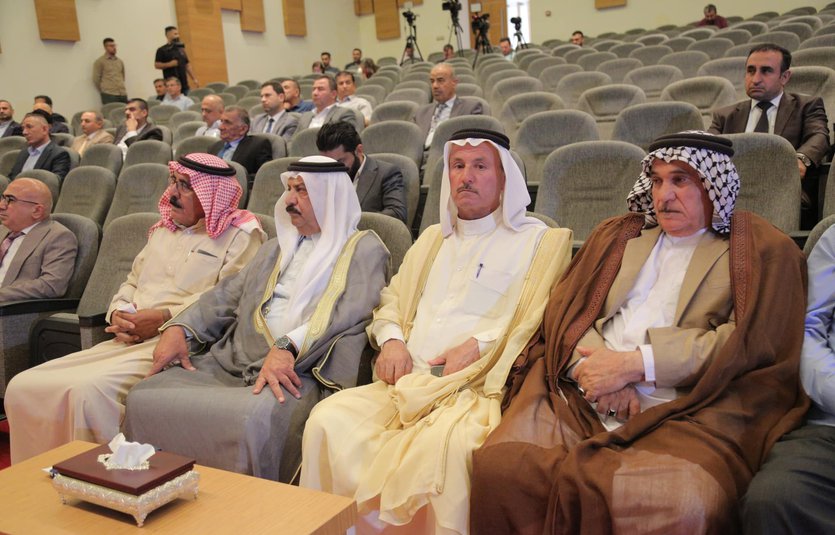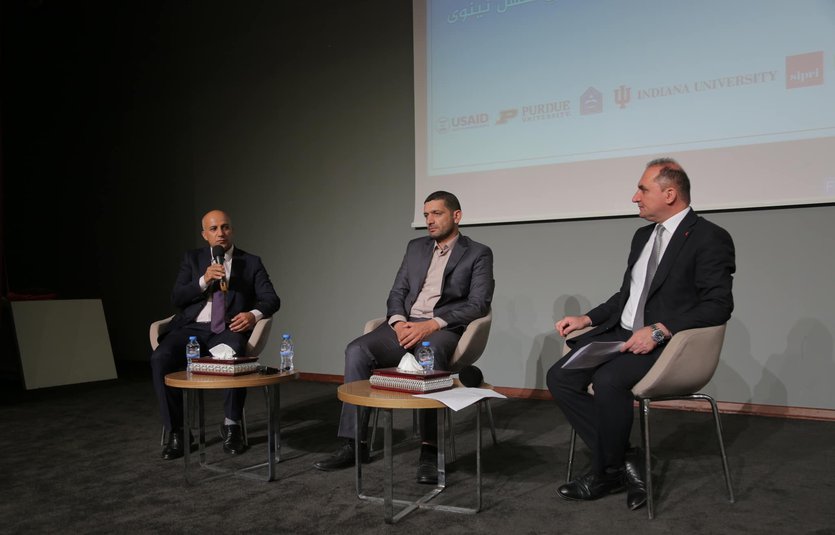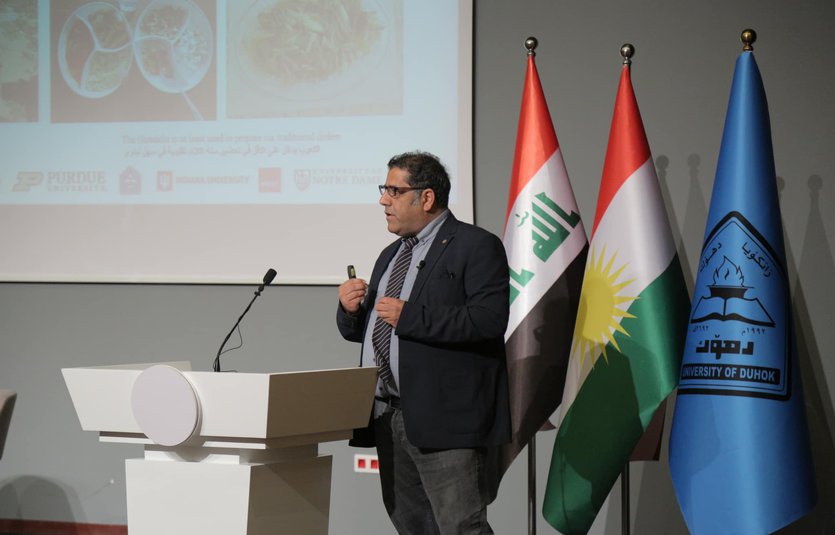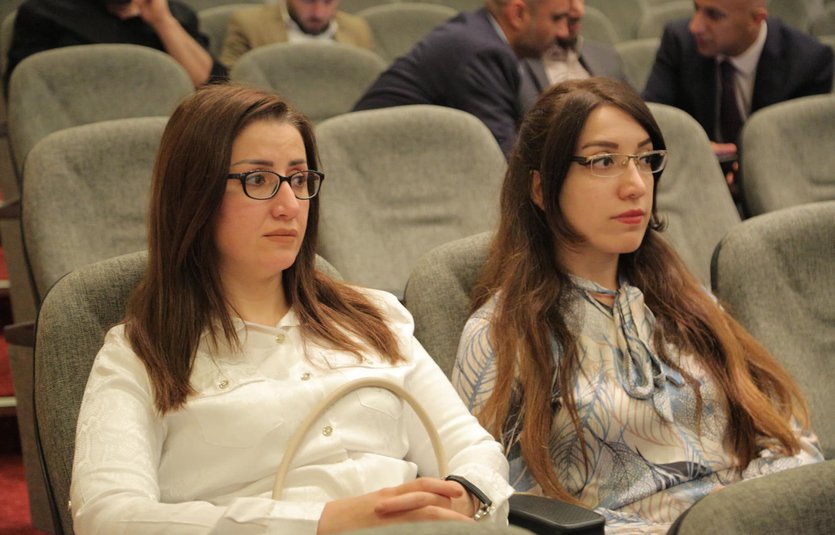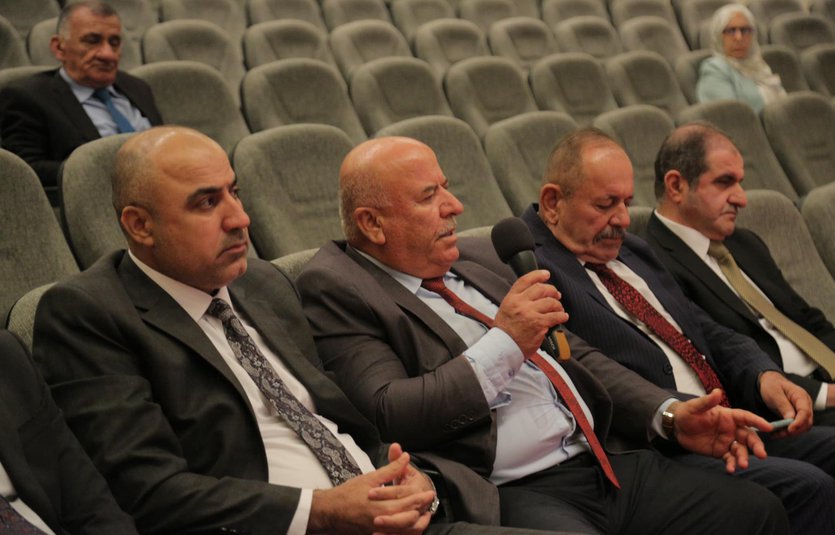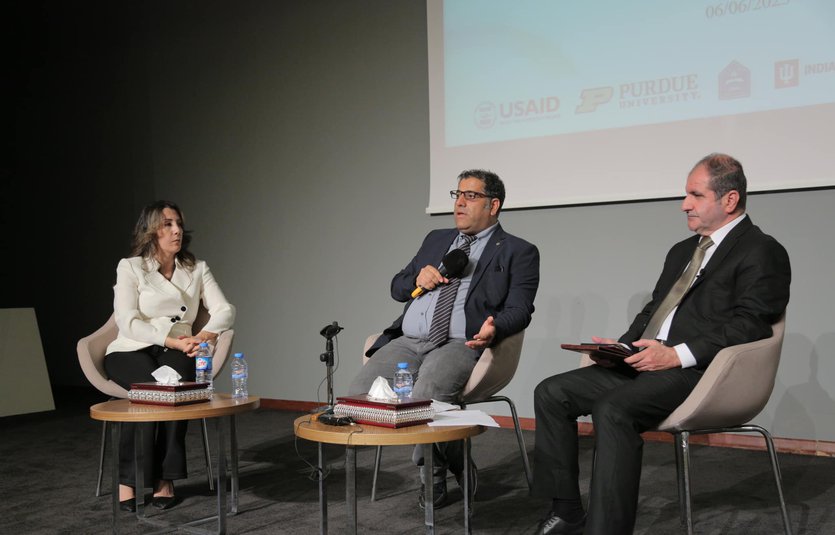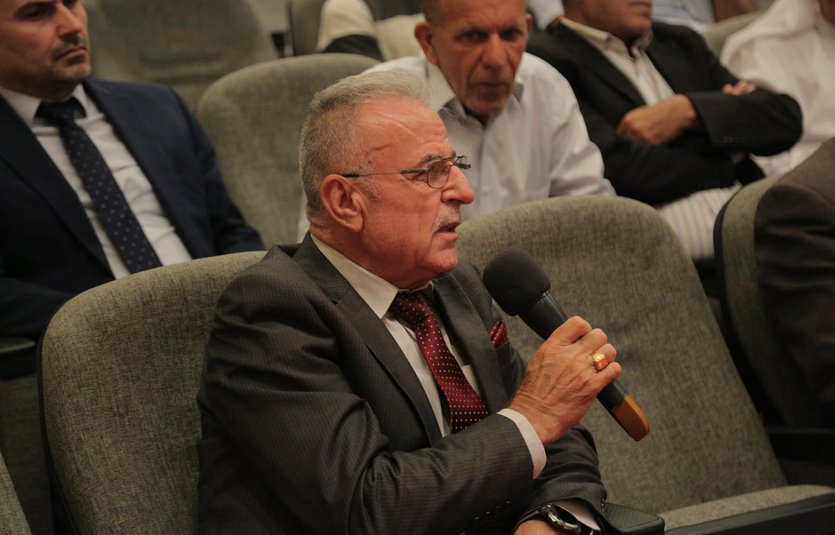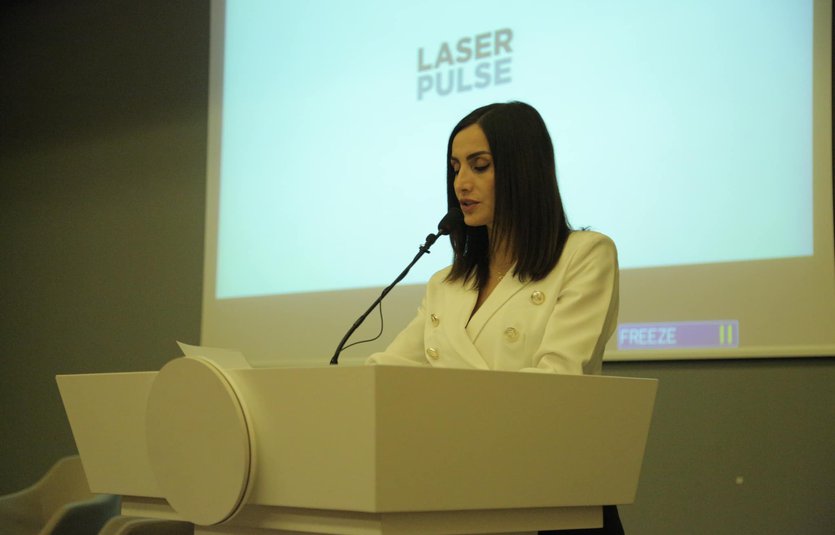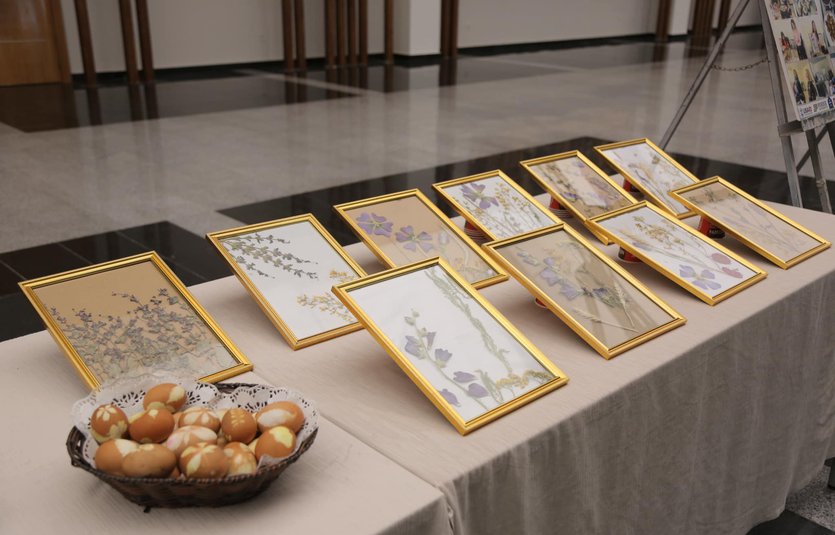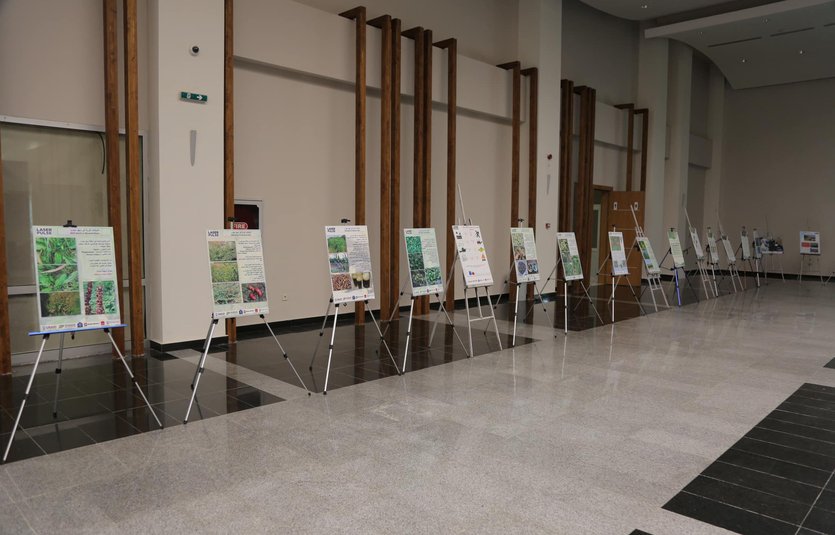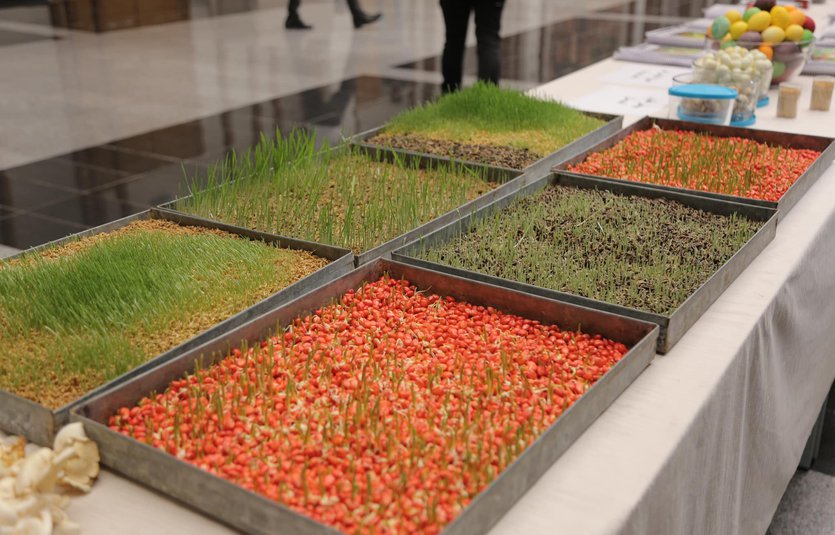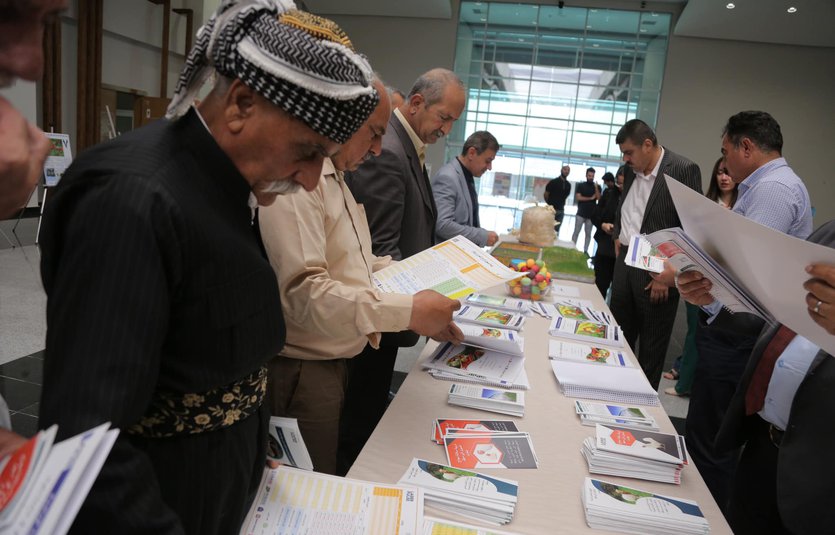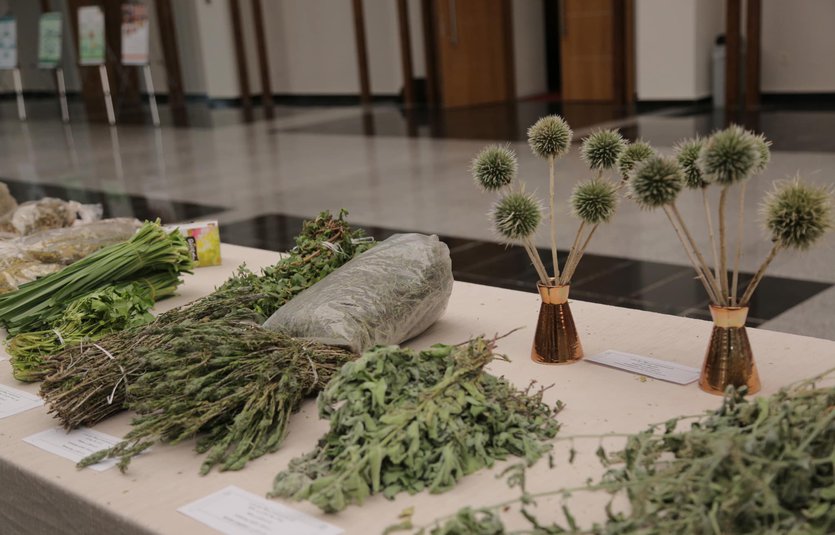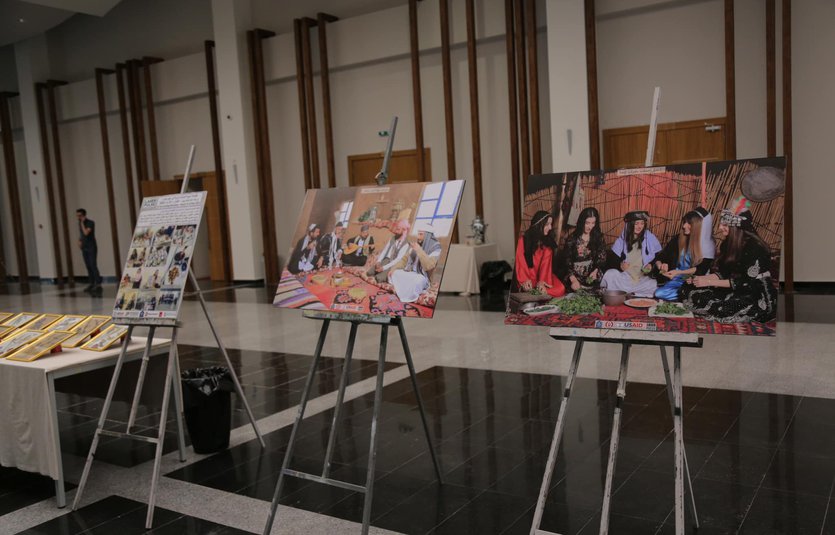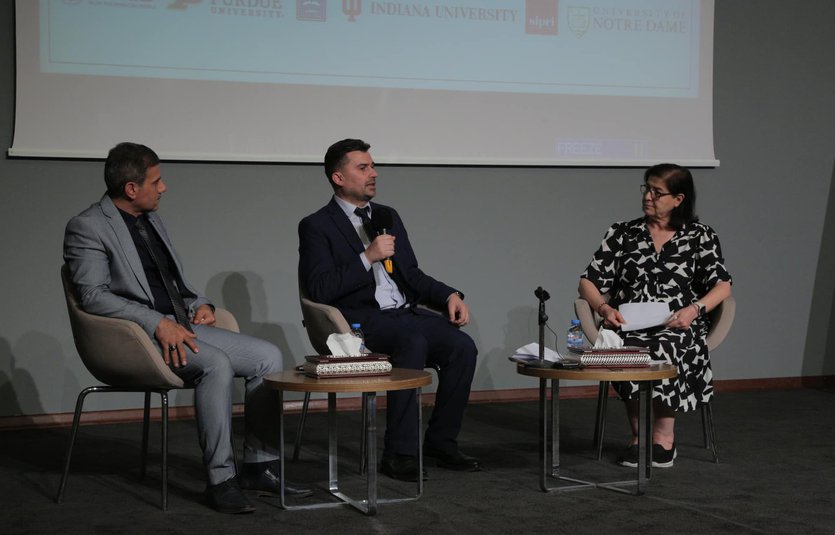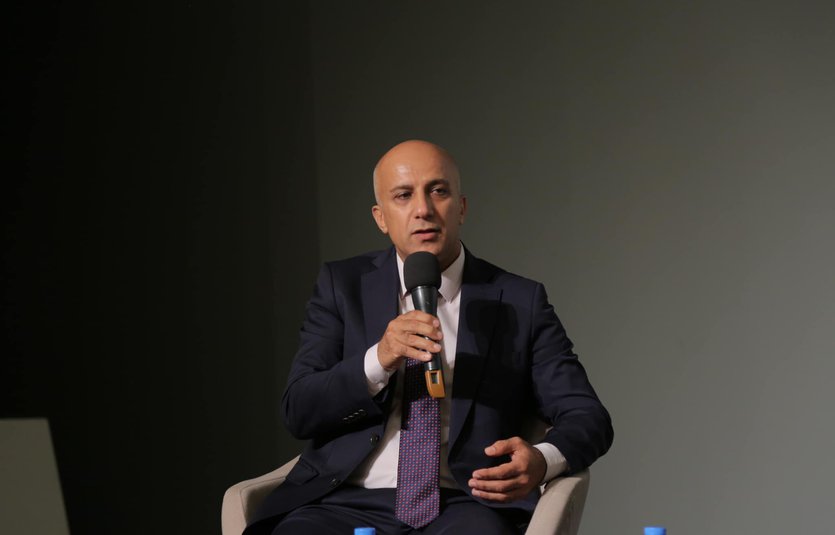In the framework of the project named “Ninewa Plains: Towards Agricultural Restoration, Support to Traditional Cultural Practices in Northern Iraq”, the University of Duhok held its second conference to bring together all parties related and interested in this aspect. The Vice President of the UOD for Scientific Affairs and Postgraduate Studies, Dr. Lokamn hadi Hassan, the Deputy Governor of Duhok, Mr. Shamon Shlimon, the Districts Managers of Til Kaif and Al-Hamdaniya, agricultural institutions officers, and farmer representatives in Ninewa Plain, along with team members working in the project who are teachers and professionals from the UOD, all attended this conference which was held at UOD’s Convention Center on June 6, 2023.
The conference commenced with a speech given by Dr. Lokman, who assured that one of the responsibilities of UOD is serving the society and this project shows how UOD is caring of its surrounding atmosphere. He described that this project signifies the social, economic, and cultural effects of ISIS occupation on the region of Ninewa Plain, especially in Til Kaif, Al-Hamdaniya, and Bashiqa. Also, He showed the goals of the project include determining the agricultural resources that have cultural values to the people of the region, determining the effects of ISIS occupation on these resources, aiding the people in regions targeted by ISIS to re-produce and utilize these resources, and enhancing the institutional abilities of UOD to organize and run high-quality aid and guiding activities.
For showing an introduction to the project and its goals, the Project Coordinator, Dr. Nashwan Shawkat, a teacher at UOD’s College of Agriculture, delivered a presentation to the attendees. He mentioned that the project highlights the agricultural activities related to cultural practices and traditions. The target area is Til kaif, Al-Hamdaniya and Bashiqa. And he stated: "The project passed two stages, at the first, 14 researchers from the UOD collected data and wrote reports on the most significant agricultural practices in the Ninewa Plain. And we interviewed with more than 1000 farmers for that reason and we met with 113 significant figures of the region including religious figures, social activists, administrative figures and chief farmers. At the second stage, we specified the activities according to the date and outcomes of the first stage, deciding what's needed at the area. We formated 4 research teams: Agricultural extension: (Dr. Shawkat A. Sadiq, Dr. Fathi Omar, and Dr. hojeen Abdullah, from UOD, and Dr. Mark Russel, Dr. Peter Hirst, Dr. Amanda Dickson, from Purdue University), Wild Plants: (Dr. Hassan Muhamed, dr. Remonda Armea, Dr. Zubaida saleh, Mr. Honar Safar, and Mr. Ahmed Mahmood, from UOD, and Dr. Sarah R. and Dr. Kate Eddens, from Indiana University), Advocacy: (Dr. Nashwan S., Dr. Rund Ali, Dr. Nazar Ameen, and Dr. Omran Omer, from UOD) and Marketing."
Furthermore, the conference included three seminars, each followed by a discussion panel. The topics of the seminars were mainly on the 3 research teams worked within the project to accomplish its tasks. These seminar topics were: (Agricultural Extension, Wild Plants, and Advocacy) in a row. The team of Agricultural Extension has produced many reports, research papers, posters and policy briefs on the extension of the plants and agriculture at Ninewa Plain as part of their outcomes. On the other side, the team of Wild Plants has planned for constructing botanical gardens at the UOD Campus and in other areas in the Ninewa Plain, and produced a herbarium, policy briefs, posters and papers, and awareness videos on how to preserve the wealth of wild plants at the area that has been traditionally utilized by the people for food, cure, and other purposes. While the Advocacy team has conducted a number of meetings and discussion sessions with significant political figures at the region, from different religions and ethnicities to inform those parties on the project activities, and to aware the people about coexistence and rebuild the missing trust among the minorities of that area. It has also produced policy briefs to the concerned parties on these outcomes. Nevertheless, the Marketing team has finished its tasks in the project. It was concerned of planting olives and reserve and extend this wealth. Also, olives marketing plans and olive pressing trainings were presented to the farmers.
After each panel, serious discussions took place and the attendees were engaged expressing their ideas and expertise in the field of agriculture. And many helpful recommendations were delivered by the agriculture institutions representatives and farmers of Ninewa Plain region.
In addition to that, an exhibition was organized during the conference, to subject the diverse sorts of plants in Ninewa Plain, along with the most common agricultural products and wealth at this region. All the attendees passed by this exhibition and expressed their amazement to the agricultural wealth the Ninewa Plain has. Also, a number of short videos were shown focusing on the traditional habits and practices adopted by the people of Ninewa Plain in dealing with plants and their common uses as for health, decorating, food, and so on, in addition to showing that how powerful the social diverse and cohesion is among the different peoples at the region from different religious, ethnical and social backgrounds.
Most importantly, the aforementioned project has been implemented by the UOD for three years and is supported by the US Agency for International Development (USAID) and Laser Pulse in collaboration with Indiana, Purdue and Notre dame universities along with SIPRI Swedish Research Institute. The project has so far conducted many seminars, dialogue sessions, workshops, and meetings with the people of the region of Ninewa Plain. And it is so far ongoing.
THE UNIVERSITY OF DUHOK
The University of Duhok (UOD) is a public university in the city of Duhok city, which is about 150 km northwest of Erbil (Arbil, Hewlér), the capital of Iraq's Kurdistan Region (KRI). The city is situated in a beautiful valley surrounded by high mountains. The university campus is a large green area in the city's west side that provides an exciting view of the city and surrounding nature. UOD was founded in October 1992 with only two colleges to meet the region's growing demand for graduate professionals. Today, the UOD has a 19-college with 67 departments, nearly 24000 students, and over 4000 academic and administrative staff. Students thrive in one of the best regional academic communities, studying in programs such as Agriculture, Medicine, Veterinary Medicine, Architecture, Engineering, Humanities, Linguistics, Basic Education, and Economics as well as Spatial Planning. UOD has strong engagement through its International Relations with many Higher Education institutions and centres of excellence worldwide, such as Purdue University, Indiana University (IU), New York University (NYU), The University of Noter Dame (ND), The University of Arkansas at Little Rock (UA), BridgeWater State University in the USA, The University of Warsaw - Poland, The University of Glasgow - Scotland, The University of Twente - The Netherlands, Leipzig University, LLC University, University of Oldenburg, The University of Vechta, Europa-Universität Flensburg, TU Dortmund university, THM Giessen University in Germany, The University of Tuscia, The university of Pavia, Sapienza Università di Roma in Italy, The University of Deusto, The University of Barcelona, The University of Granada (UGR) in Spain, Lund University - Sweden, The University of Sussex in the UK, Tampere University - Finland, and so many more. The University of Duhok is an active member of the International Association of Universities (IAU), The UNIMED, the Mediterranean Universities Union, and The Association of Arab Universities (AARU).
UOD Media; May 28, 2023
Fatima Mahmood
Photo Credits: Mohammed AbdulKareem, Ali Banki
UOD Media; June 19, 2023
Fatima Mahmood
Photo Credits: Mohammed Abdulkareem, Ali Banki, Harman Jangeer
